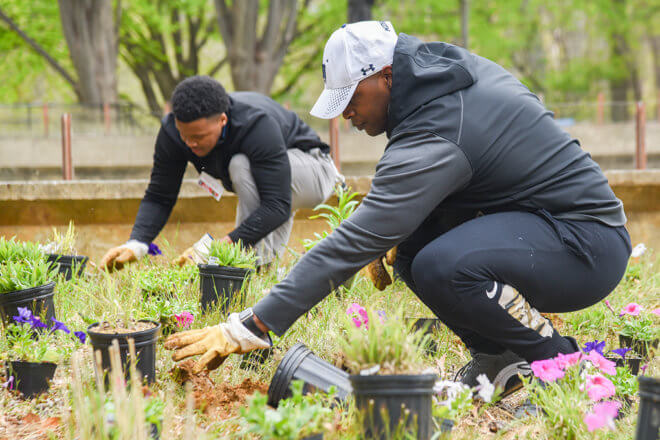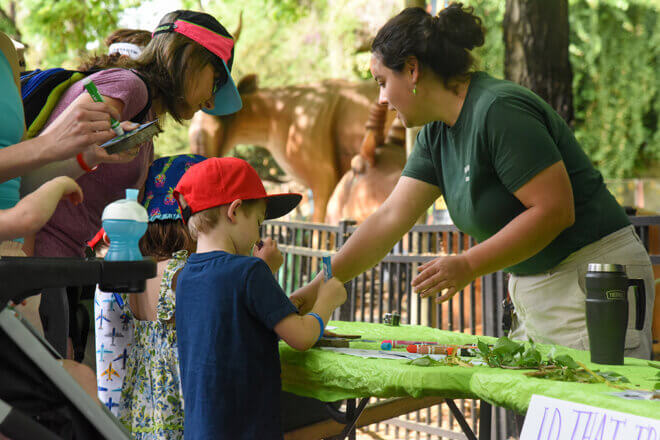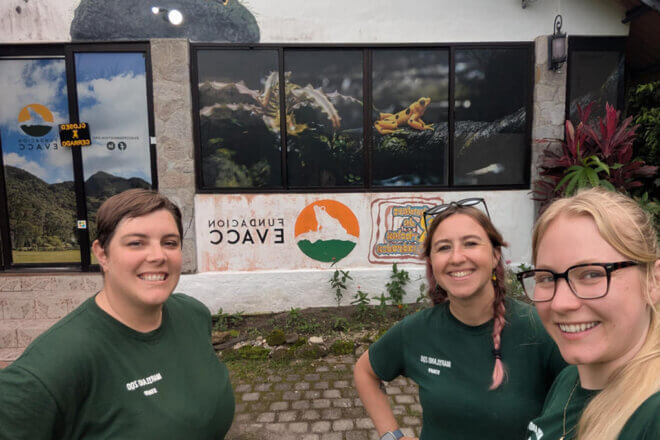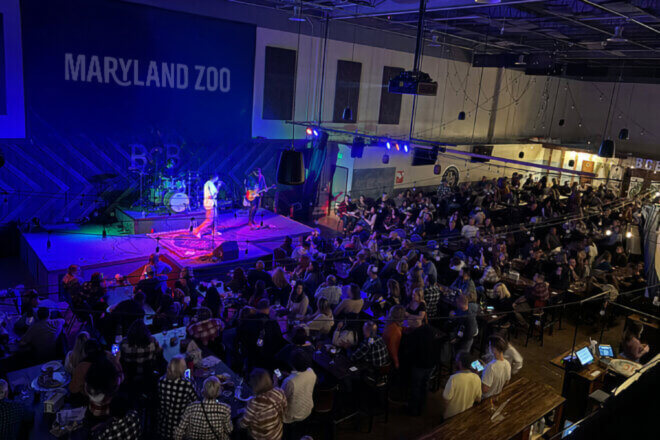BALTIMORE, MD – Because the well-being of animals around the globe is tied to the health of our planet, Maryland Zoo today released a detailed Sustainability Plan that will reduce the Zoo’s energy and water consumption while incorporating green practices into every facet of the Zoo’s management and operations.
The new plan sets standards that address: energy and water consumption; wastewater treatment; solid waste generation and disposal (including animal waste); fleet management; and supply chain efficiency.
“Our work saving animal species and their wild habitats around the globe begins right here at home,” said Zoo President & CEO, Kirby Fowler. “Maryland Zoo will practice what we preach by better conserving natural and human-made resources, and reducing the environmental footprint of all our operations.”
“I can’t explain it more simply than this: Maryland Zoo will be zero waste by 2030.”
The Zoo has already taken steps to become more efficient:
- In 2021, the Zoo replaced its diesel shuttle with zero emission vehicles.
- It has made notable strides in waste reduction by transitioning away from plastics in favor of reusable or fully-recyclable products with no single-use plastic packaging in guest areas.
- The Zoo gift shop is one of the first retail venues in the history of SSA, a 50-year-old national food and retail concessionaire, that provides plastic-free packaging.
- In hosting zoo professionals from around the world in 2022, our Zoo partnered with the National Aquarium and SSA to present the first-ever zero waste conference in the industry.
- Starting in 2023, the Zoo sends 30% of its animal waste to be composted and converted into clean energy with plans to increase capacity in the coming years.
- Each summer, Zoo volunteers and staff grow produce in an on-site garden to help feed the animals.
- The Zoo partners with BGE, which provides trimmed tree branches for animal use and enrichment.
- Parking areas already include electric vehicle charging stations, through another partnership with BGE. Long-planned renovations to the lots, currently underway, will dramatically improve stormwater runoff with a state-of-the-art system to filter and collect rainwater. They also include new covered bike parking and repair stations, and will reduce ground-level temperatures during the hottest summer months.
- At Zoo events, food and drink options have been adjusted to eliminate non-recyclable waste while food composting and increased recycling capacity have both been added. Guests can also recycle old electronics during events, helping save habitats in the wild.
The Sustainability Plan’s recommendations are in alignment with guidance by the Association of Zoos and Aquariums as well as city, state, and federal climate targets and those set by the United Nations Sustainable Development Goals. Lorax Partnerships was the Zoo’s consultant on the plan.






Share this article